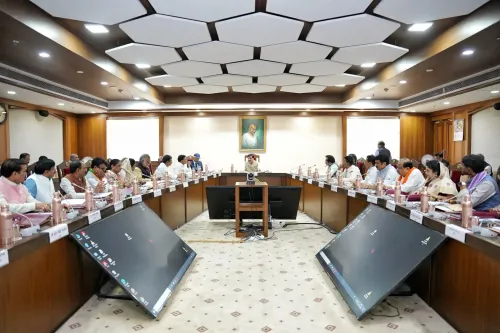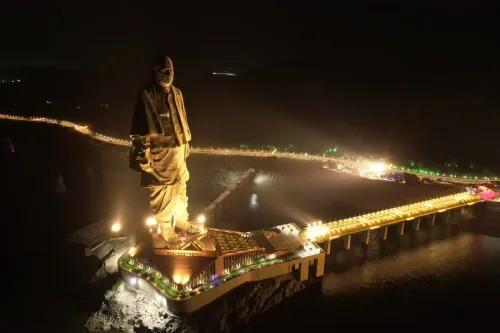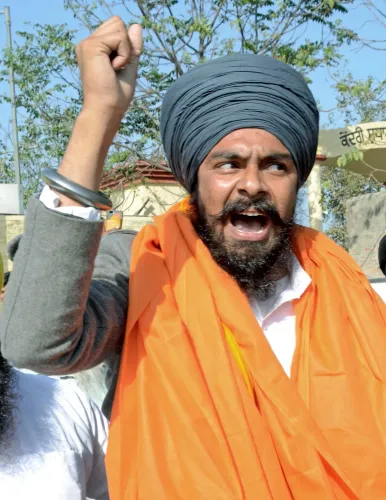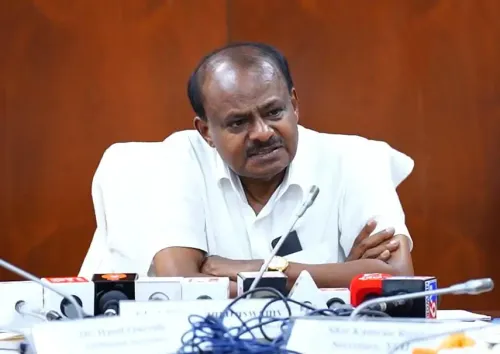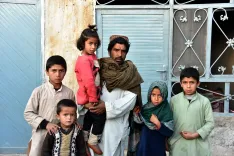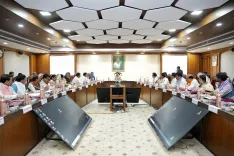How is Odisha affected by the 'Bharat Bandh' and drivers' strike?
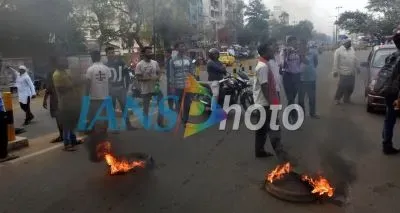
Synopsis
Key Takeaways
- Odisha's transportation services faced severe disruptions due to the drivers' strike.
- The ongoing Bharat Bandh highlights widespread discontent among workers against labor policies.
- Protests occurred at major locations in Bhubaneswar and other urban areas.
- Trade Unions have united to demand action from the government.
- Workers are advocating for their rights and fair labor practices.
Bhubaneswar, July 9 (NationPress) The cease work strike initiated by the Odisha bus and truck drivers’ association, alongside the nationwide 'Bharat Bandh' declared by various Trade Unions, has significantly disrupted daily life across numerous regions in the state.
For the second consecutive day on Wednesday, drivers throughout Odisha maintained their strike, following unsuccessful negotiations between the state government and the association.
The drivers' group persists in their demand for a formal commitment or official notification affirming the fulfillment of their requests.
Transportation services in multiple areas of Odisha faced severe interruptions because of the drivers' strike.
In a video announcement, Prasanta Menduli, the president of the Odisha Driver Mahasangha, stated, “We appreciate the state government's willingness to address all our concerns in the near future. Nevertheless, a formal notification has yet to be issued. Previous assurances from the government have not materialized. We urge the government to take tangible steps towards addressing our demands.”
Concurrently, normal life was greatly disturbed in various parts of Odisha on Wednesday in response to the Bharat Bandh call from several Trade Unions protesting against the Centre's alleged anti-worker, anti-farmer, and pro-corporate labor policies.
In Bhubaneswar, members of different Trade Unions organized protests at key locations such as Master Canteen, Vani Vihar, Jaydev Vihar, and others.
The Trade Union members also demonstrated at the Bhubaneswar Railway station and obstructed main roads within the city.
Commuters experienced significant challenges in reaching their destinations during the morning hours.
However, the situation gradually normalized following police intervention, which resulted in the detention of several protestors at various locations.
The demonstrators also disrupted train services and staged picketing in other major urban and industrial areas of the state, including Rourkela, Berhampur, and Balasore.
Ramachandra Khuntia, the National Vice President of INTUC, expressed on Wednesday, “We have no option but to protest. Our demands have been disregarded for years. The government has failed to engage in meaningful dialogue with Trade Unions. Many commitments made in previous years, including the implementation of the 17-point charter of demands, remain unaddressed.”
He accused the Odisha government of promoting contractualisation and privatisation in essential public sectors like Railways, Defence, and other strategic industries.
Khuntia also condemned the delays in the implementation of the national minimum wage and the absence of adequate labor laws that protect workers' rights.
Biju Shramik Samukhya, the Trade Union wing of the Opposition BJD, has also expressed full support for the nationwide workers' strike.
Prafulla Samal, its President, conveyed solidarity, stating that the ongoing agitation represents the voice of India’s working class and necessitates immediate government attention.
Importantly, the 'Bharat Bandh' was called by a coalition of central Trade Unions, garnering support from farmer organizations and rural worker groups.

